Технологическая карта урока английского языка в 7 классе по ФГОС
1. Ф.И.О. учителя: __________________________________
2. Класс: ___ 7 Дата: ___________Предмет: _____________
3. УМК: «English Brilliant», 7 класс, Ю.А. Комарова. Русское слово, Macmillan, 2014г.
Цель
Формирование определённых умений.
Задачи
1.Образовательные:
закрепление фонетических и лексических навыков по теме «Праздники»;
развитие навыка аудирования.
2. Развивающая:
развивать навыки аудирования;
развивать речемыслительные и познавательные способности.
3. Воспитательная:
содействовать формированию толерантности в отношении к культуре своего и других народов;
содействовать развитию эстетического вкуса, культуры речи;
содействовать развитию интереса к изучению иностранного языка.
Планируемые результаты:
1. Закрепить лексику по теме «Праздники».
2.Накапливать багаж нового лексического, грамматического и страноведческого материала и приобретать опыт его применения.
3.Развить навыки аудирования:
преобразовывать практическую задачу в познавательную;
различать способ и результат действия;
вносить необходимые коррективы в действие после его завершения на основе его оценки и учёта сделанных ошибок;
концентрация воли для преодоления интеллектуальных затруднений;
развитие мотивов учебной деятельности и формирование личностного смысла учения.
Ход урока
Учитель приветствует учащихся:
Hello, boys and girls! I’m glad to see you.
Sit down please. Let’s start our lesson. How are you?
Greet each other without words. Try to show with your eyes what your mood is
Children:
Hello, teacher. We are glad to see you too.
We are fine, thank you.
Поздороваться с каждым из одноклассников, но не словами, а молча - глазами. При этом учащиеся должны постараться глазами показать, какое у них сегодня настроение.
Личностные:
Выработка учебной мотивации, установление учащимися связи между целью учебной деятельности и ее мотивом, установление личностного контакта обучающегося.
Регулятивные:
Учиться работать по предложенному плану, выдвигать свой план.
Коммуникативные:
Умение отвечать за себя и других участников учебного процесса.
Речевая зарядка
Agree or disagree.
1.All people love celebrating.
2.We wear special clothes.
3.We don’t eat special food/
4. Holidays are boring.
5.We are singing and dancing.
Ученики соглашаются или нет
Постановка цели и задач урока. Мотивация учебной деятельности учащихся
Work groups.
I have got 4 cards. These cards are divided into some parts. I want you to make the whole card and name the topic of our lesson. (Нужно взять открытки с праздниками, разрезать их на части).
Слайд 1, 2
What celebrations are special?
Работают в группах.
Собирают пазлы и на основе получившейся картинки называют тему урока.
Ученики составляют кластер
Личностные
Ученик должен задаваться вопросом, какое значение и какой смысл имеют для меня полученные знания?- и уметь на него отвечать; нравственно-этическая ориентация, в том числе и оценивание усваиваемого содержания.
Регулятивные
Целеполагание и планирование - определение последовательности промежуточных целей с учетом конечного результата; прогнозирование - предвосхищение результата и уровня усвоения знаний, его временных характеристик.
Познавательные
Использование имеющихся знаний, самостоятельное выделение и формулирование познавательной цели, поиск и выделение необходимой информации; применение методов информационного поиска, в том числе с помощью компьютерных средств; структурирование знаний, выдвижение гипотез и их обоснование.
Коммуникативные
Планирование учебного сотрудничества с учителем и сверстниками - определение цели, функций участников, способов взаимодействия; постановка вопросов, инициативное сотрудничество в поиске и сборе информации.
Актуализация знаний
Упр. 1
Let’s revise the names of the celebrations.
Match special days with the pictures.
(Работают по учебнику). Слушают и повторяют
Соединяют названия особых дней с картинками. Определяют 2 лишних названия.
Регулятивные
Выделение и осознание учащимся того, что уже усвоено, осознание качества и уровня усвоения.
Познавательные
Формирование умения анализа и синтеза, анализ объектов с целью выделения признаков (существенных, несущественных).
Коммуникативные
Уметь слушать и слышать, понимание речи других, оформление внутренней речи во внешнюю.
Обобщение и систематизация знаний
Упр.3-7
Заполняют таблицу
Работают в парах по таблице
Коммуникативные: планирование учебного сотрудничества.
Познавательные: поиск и выделение необходимой информации, смысловое чтение, умение структурировать знания, оценка процессов и результатов деятельности, построение логической цепи рассуждения, анализ объектов с целью выделения признаков (существенных, несущественных); доказательство и опровержение.
Регулятивные: волевая саморегуляция осознание того, что уже усвоено и что ещё подлежит усвоению.
Физкультминутка
Регулятивные: умение соотносить свои действия с действиями учителя; умение одновременно удерживать несколько видов деятельности: двигательную, речевую, мыслительную.
Коммуникативные: умение интегрироваться в группу сверстников.
Личностные: развивают умение применять в жизненных ситуациях и учебном процессе способы снятия напряжения, концентрации внимания, умение включаться в общую деятельность, развивать творческий потенциал.
Контроль усвоения, обсуждение допущенных ошибок и их коррекция
Регулятивные: контроль (самоконтроль) и коррекция в форме сравнения способа действия и его результата с заданным эталоном.
Познавательные: умение осознанно и произвольно строить высказывания.
Коммуникативные: умение с достаточной полнотой и точностью выражать свои мысли в соответствии с задачами и условиями коммуникации.
Информация о домашнем задании, инструктаж о его выполнении
WB p.4
Коммуникативные умение с достаточной полнотой и точностью выражать свои мысли в соответствии с задачами и условиями коммуникации.
Регулятивные умение принимать и сохранять учебную задачу;
учитывать выделенные учителем ориентиры действия в учебном материале в сотрудничестве с учителем.
Рефлексия
Учитель выявляет эмоциональный уровень учащихся после повторения пройденной темы с обобщением знаний по ней и контроля знаний.
3 существительного
3 прилагательного
3 глагола
Music, songs, dances
Special, funny, interesting
Личностные: умение давать верную эмоциональную оценку своей деятельности на уроке.
Регулятивные: оценивание детьми собственной деятельности, определение позиции ученика.
Познавательные: формирование внутреннего плана действий, структурирование полученной информации, анализ деятельности на уроке.
Коммуникативные: умение с достаточной полнотой и точностью выражать свои мысли в соответствии с задачами и условиями коммуникации.

 Получите свидетельство
Получите свидетельство Вход
Вход



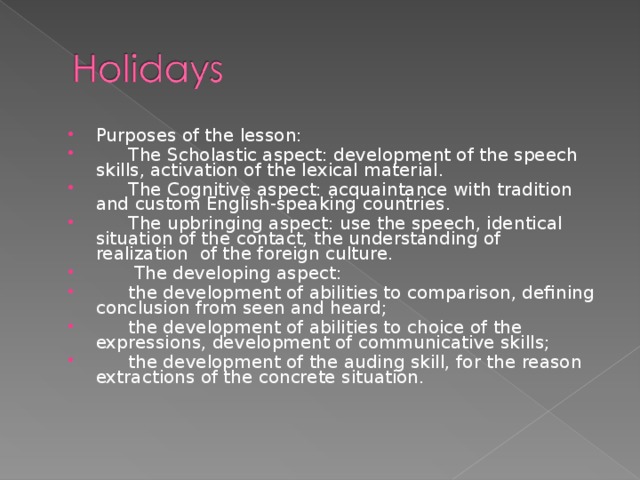
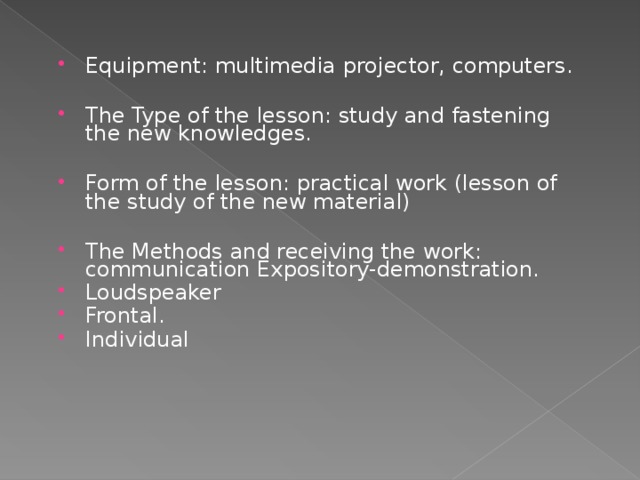

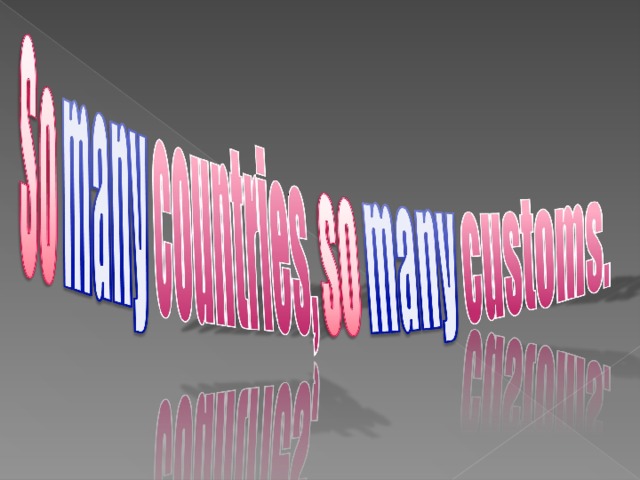
![[i] Holiday, Sunday, Monday, Tuesday, Wednesday, Thursday, Friday, Saturday, Yesterday [ei] Day, Birthday, Today](https://fsd.videouroki.net/html/2018/05/04/v_5aebdaee9ba67/img_v99715476_0_4.jpg)
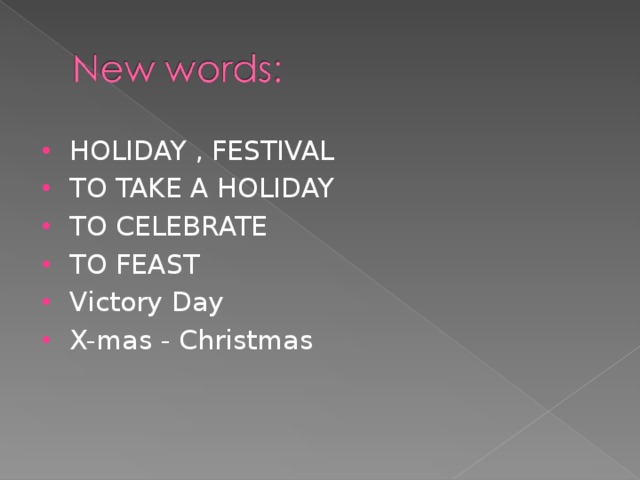
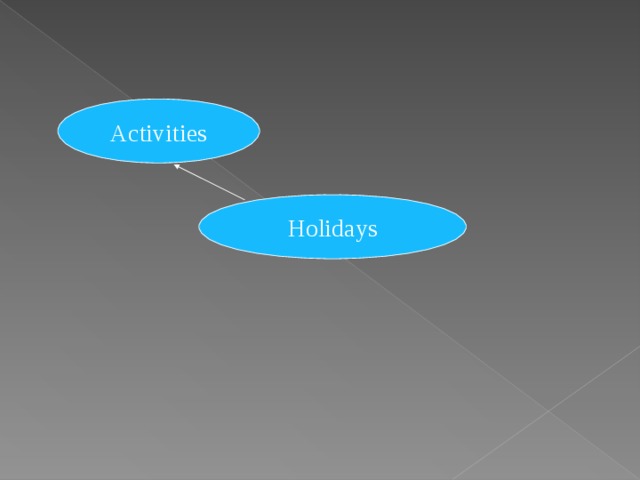
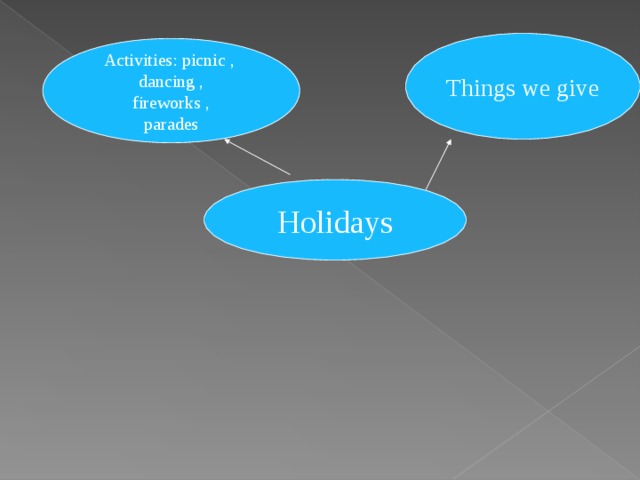
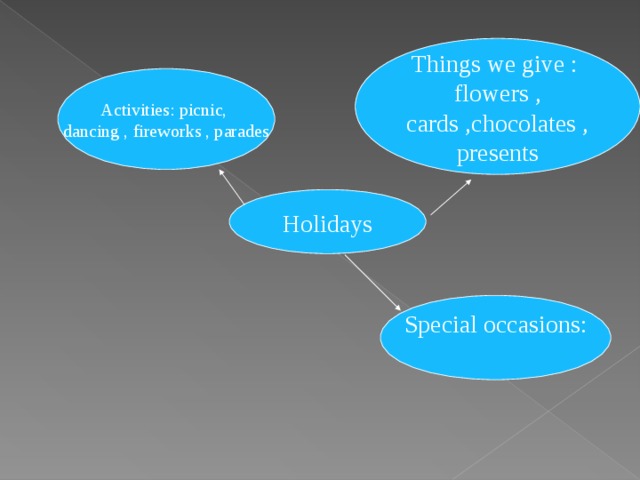
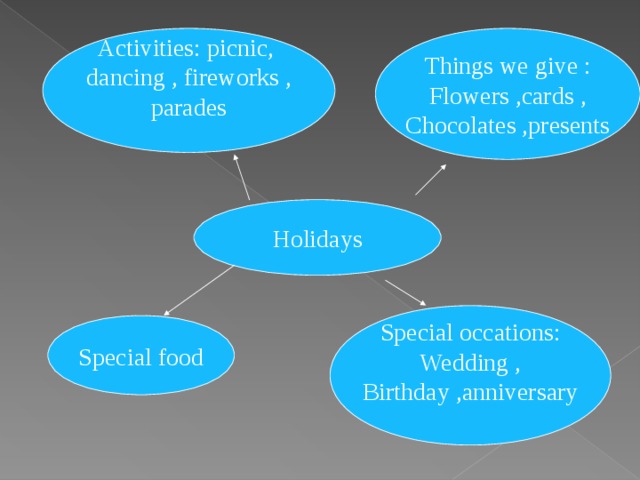
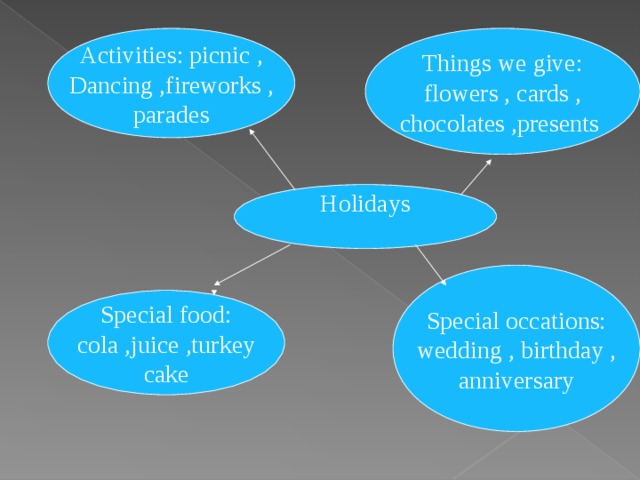
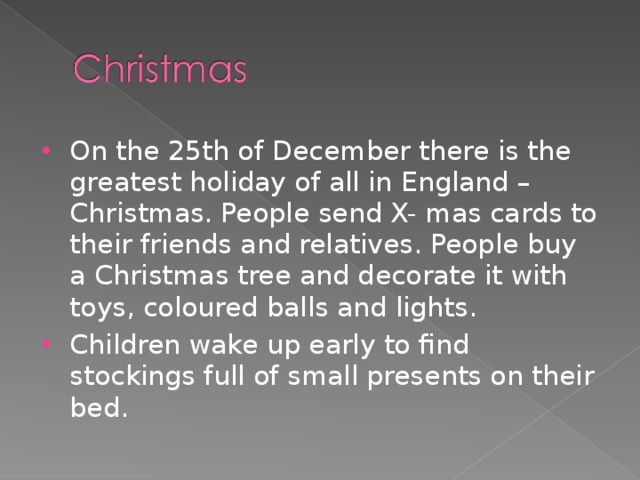
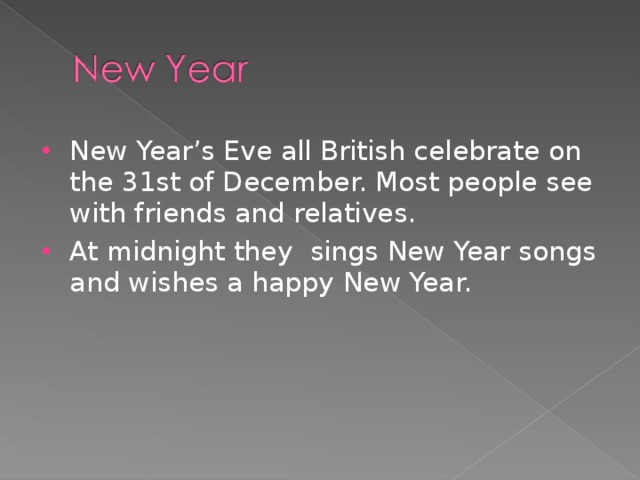
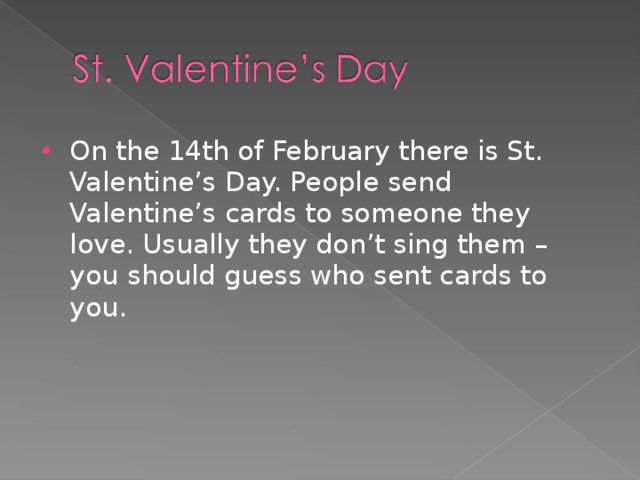
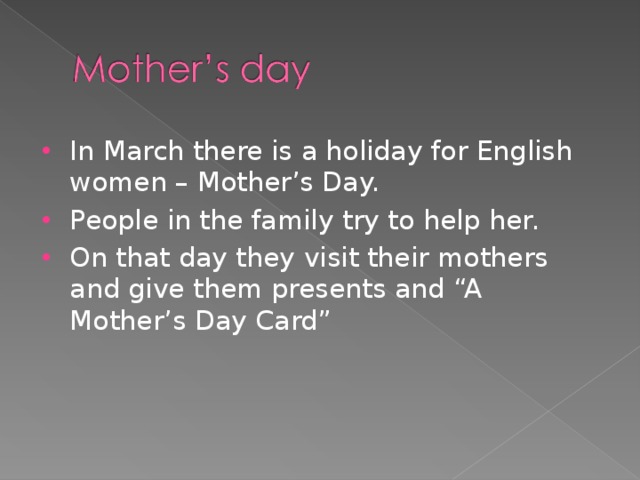
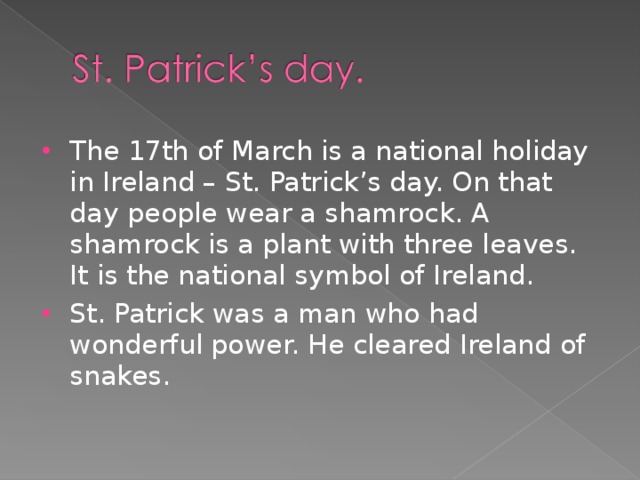
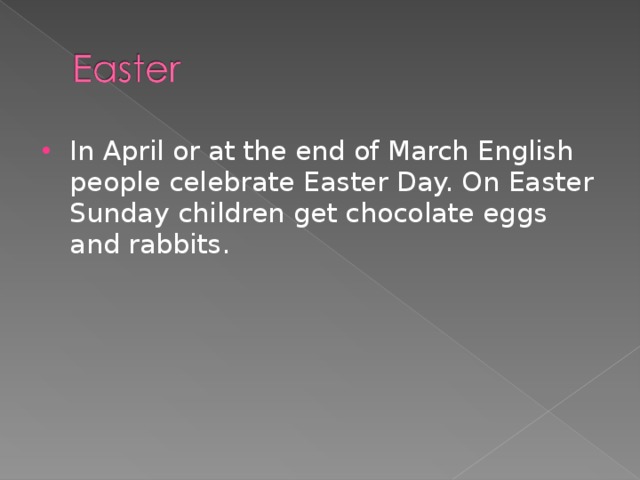
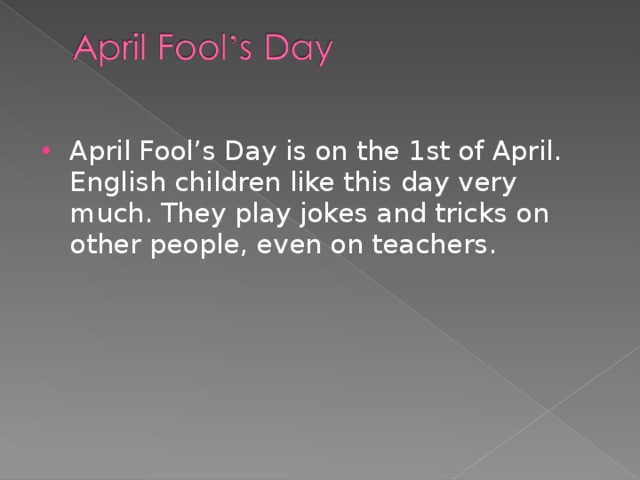
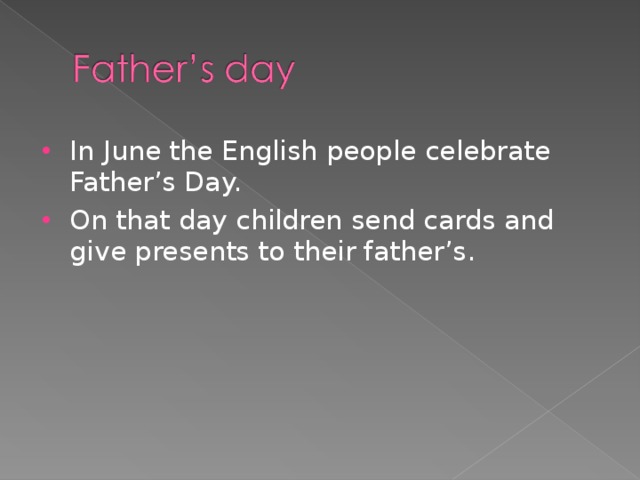
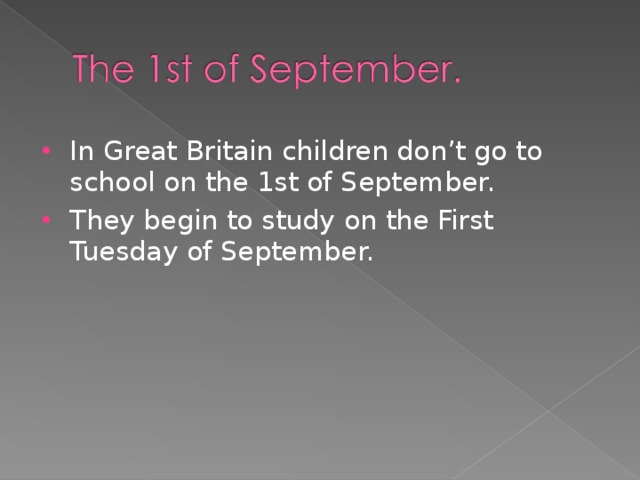
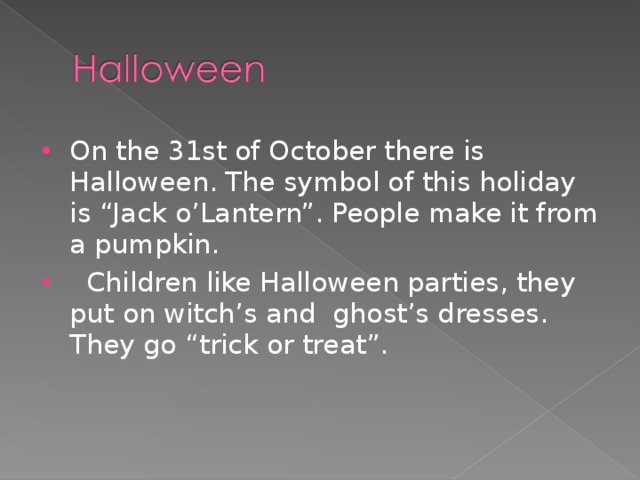
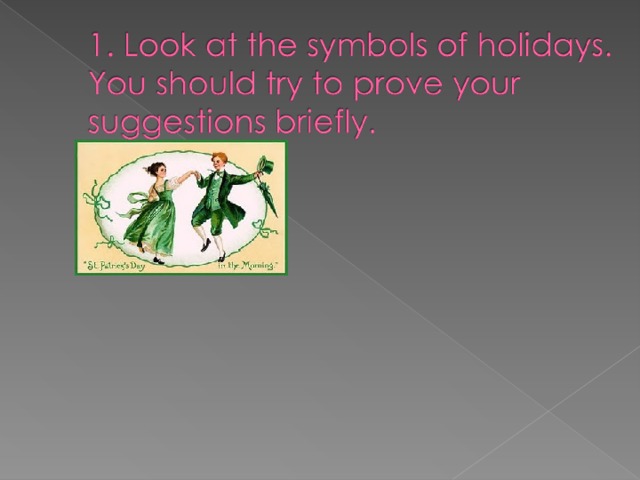
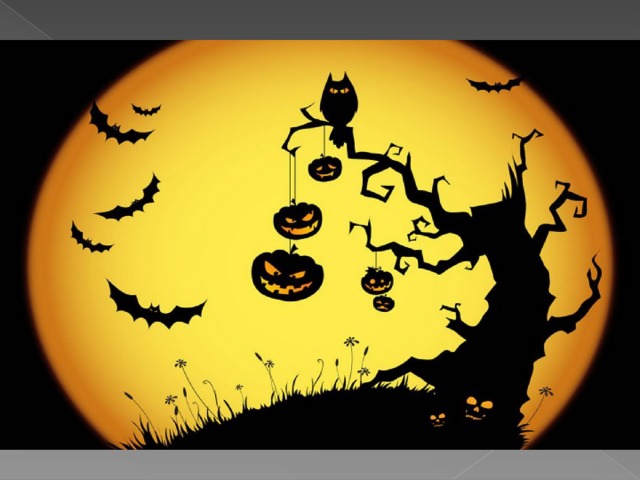
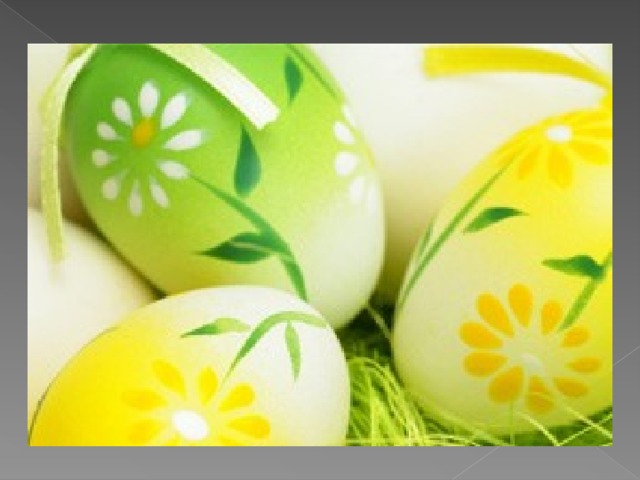
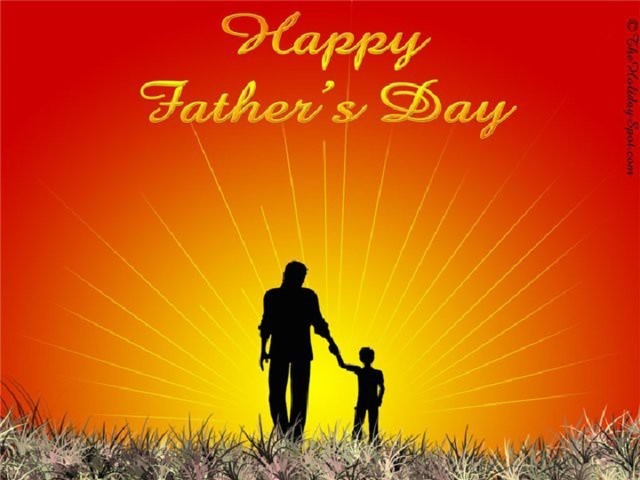
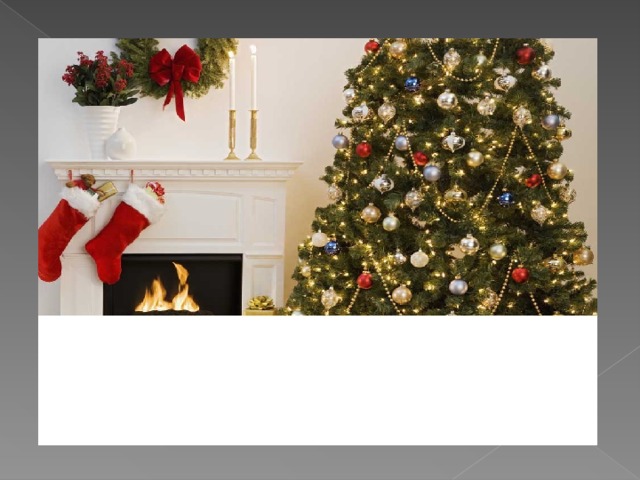
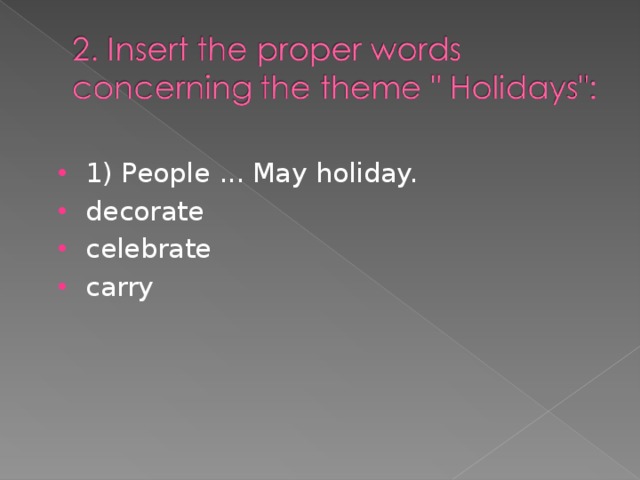
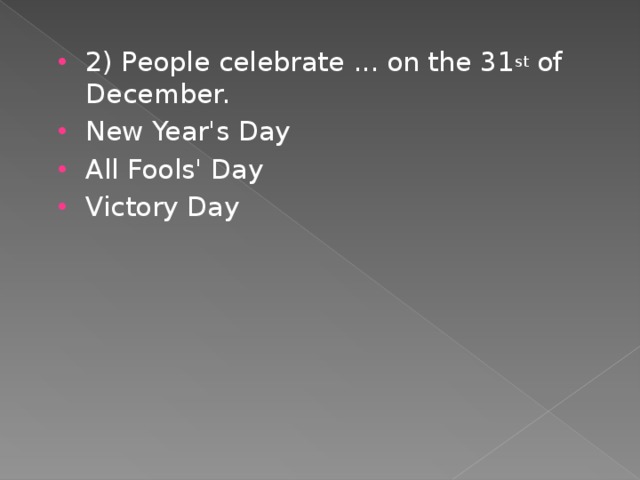
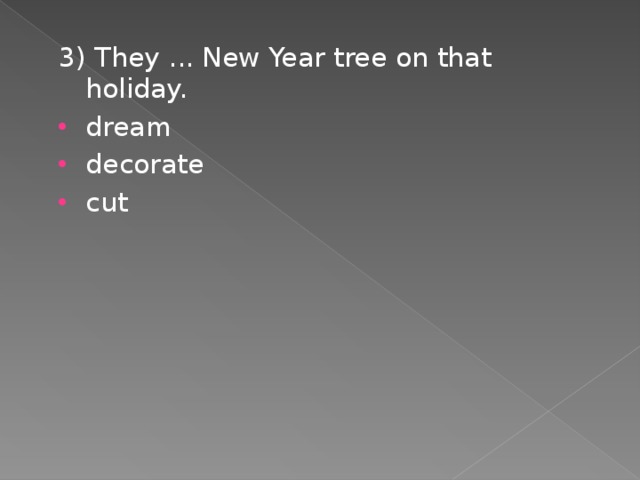
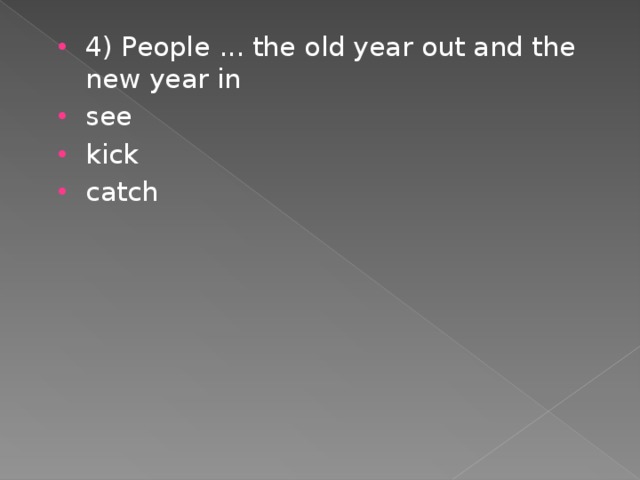
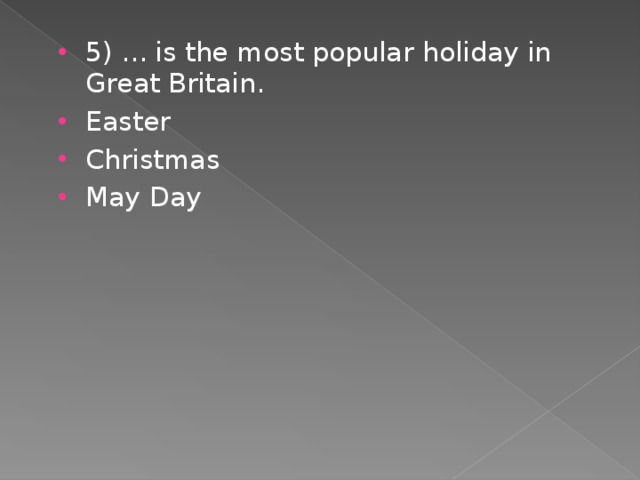
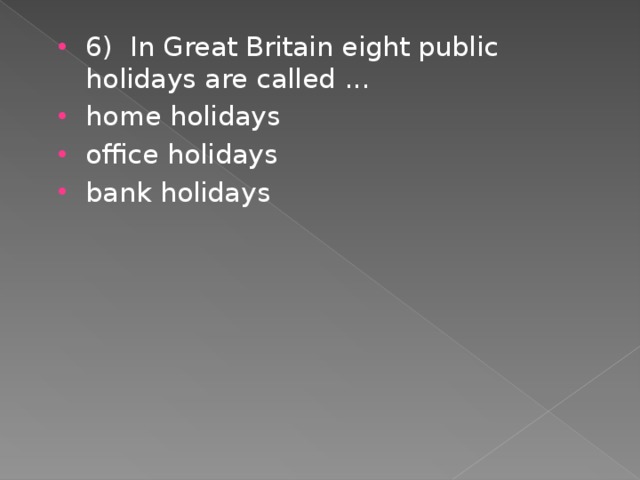
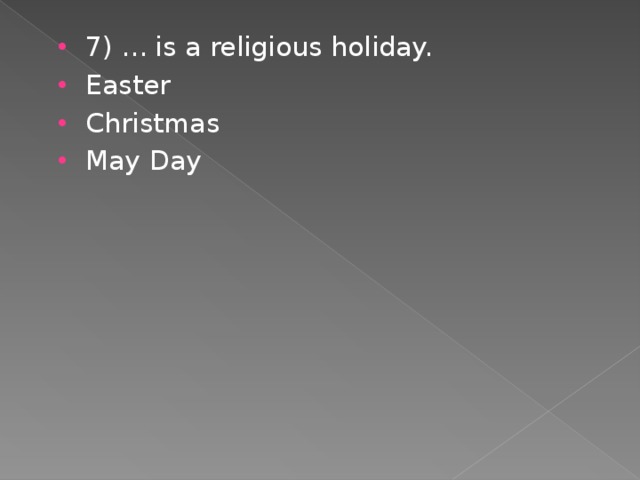
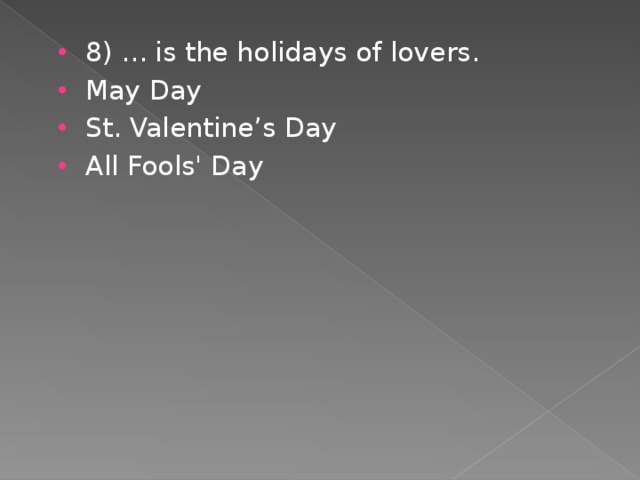
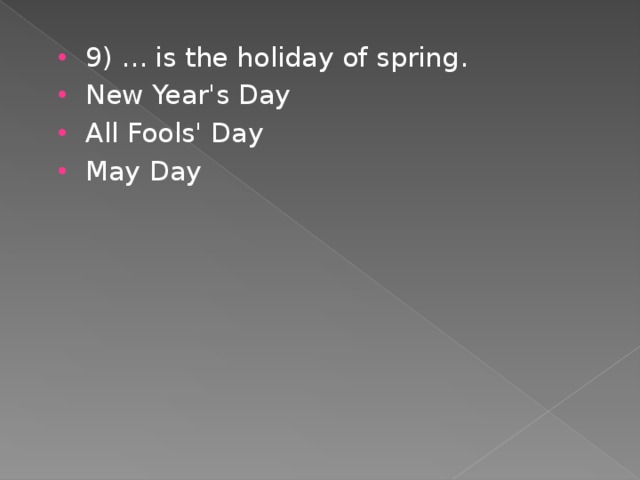
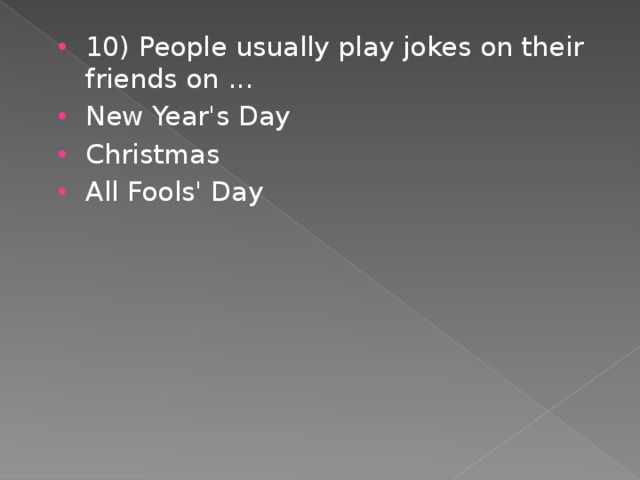
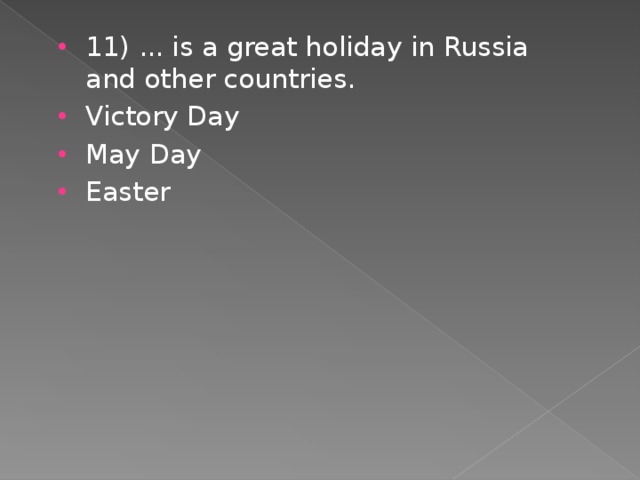
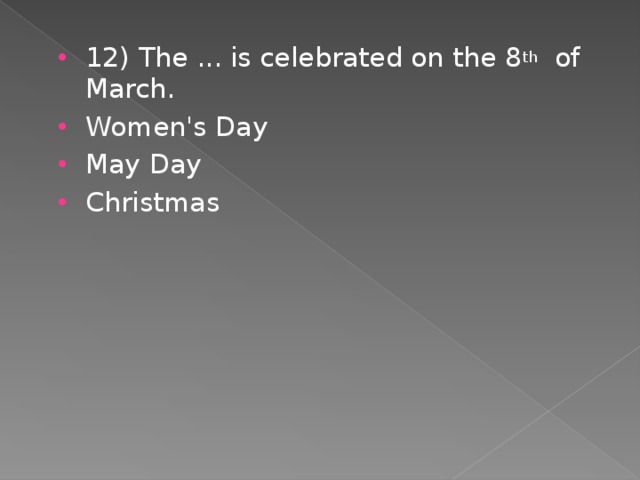
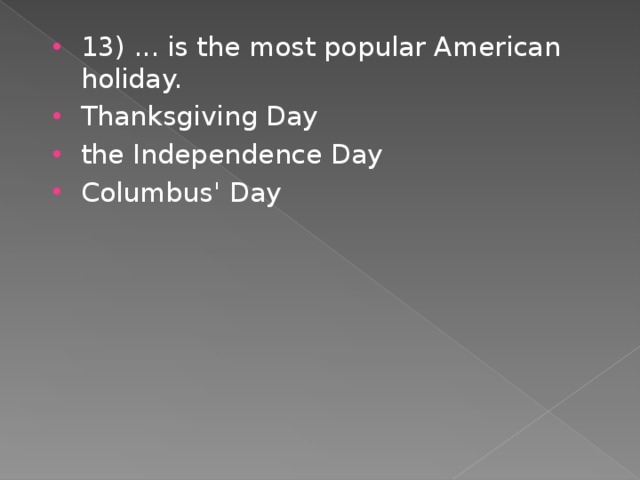
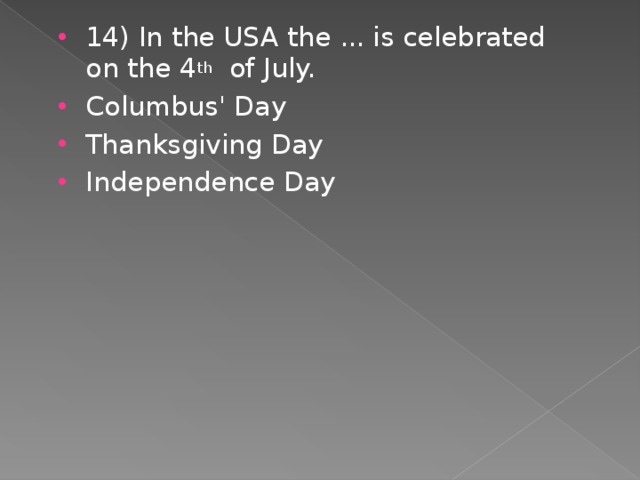
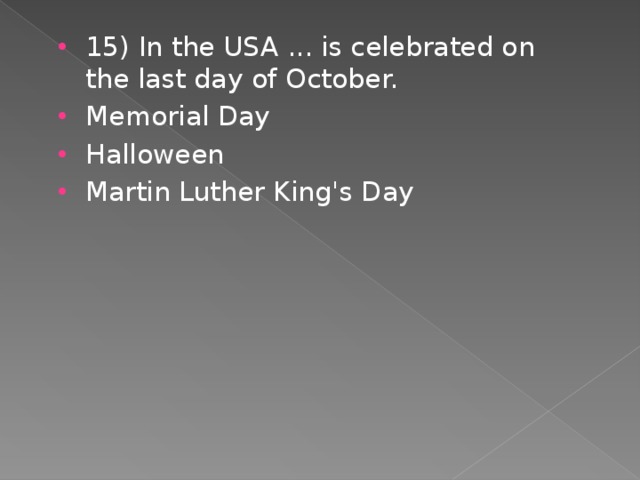
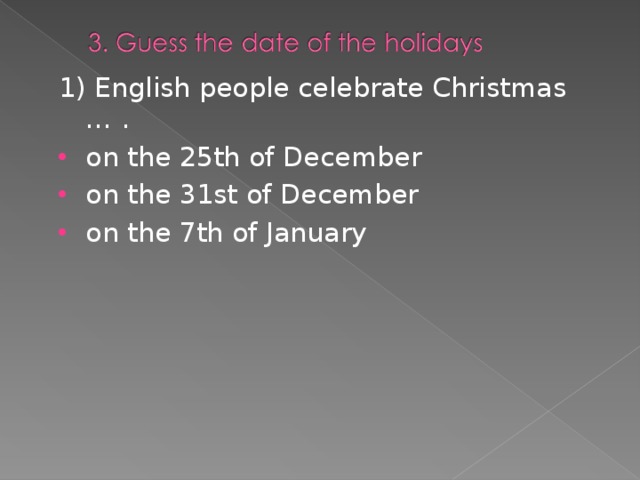
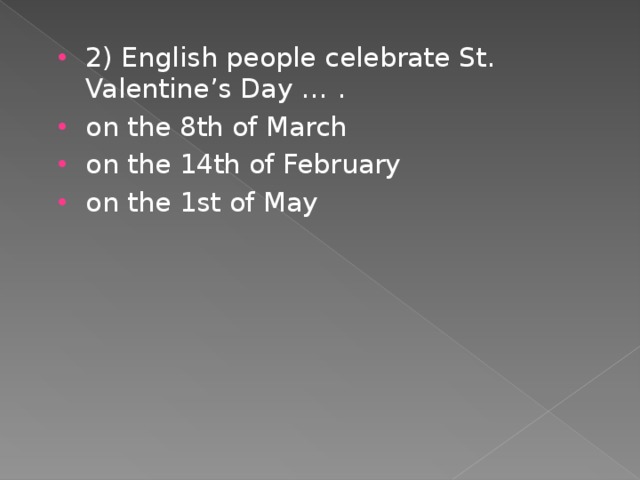
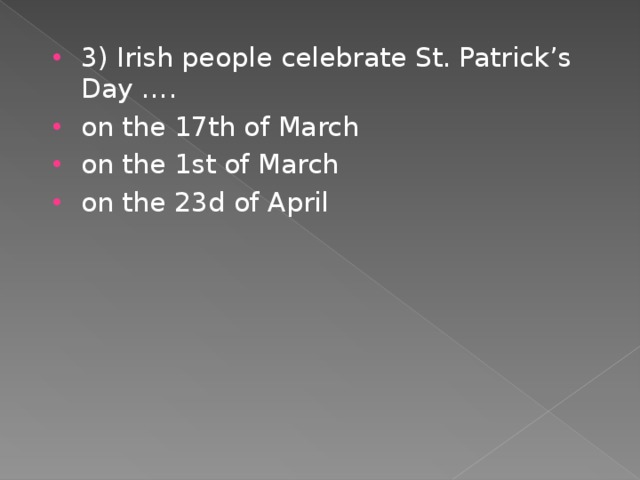
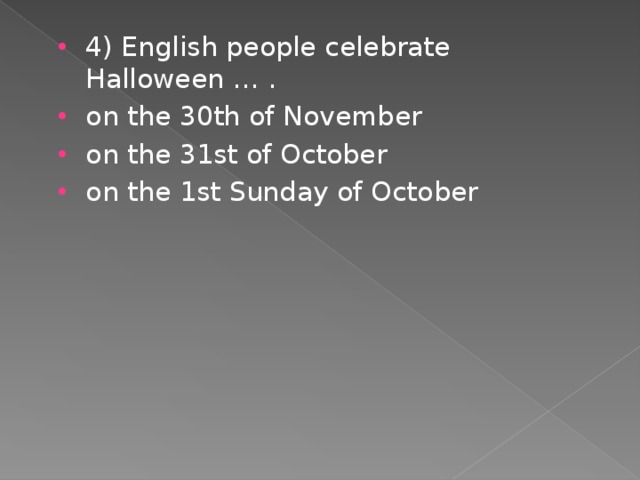
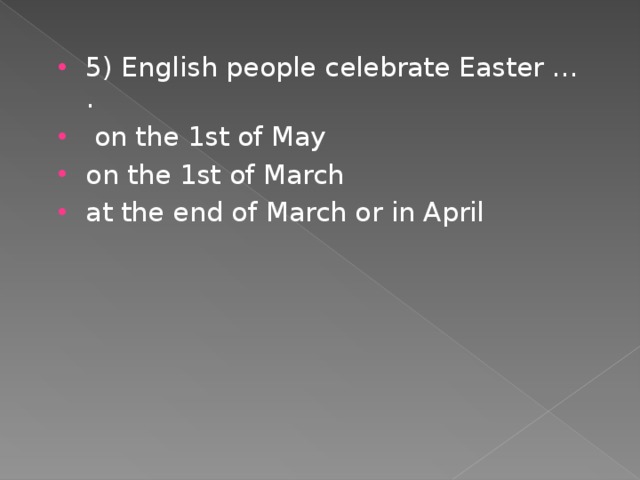
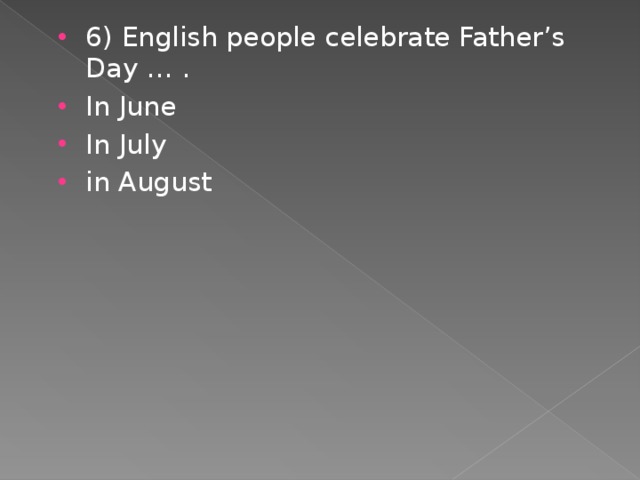
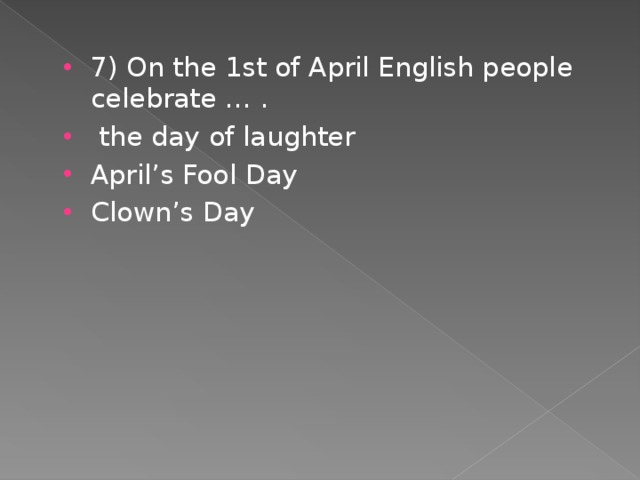
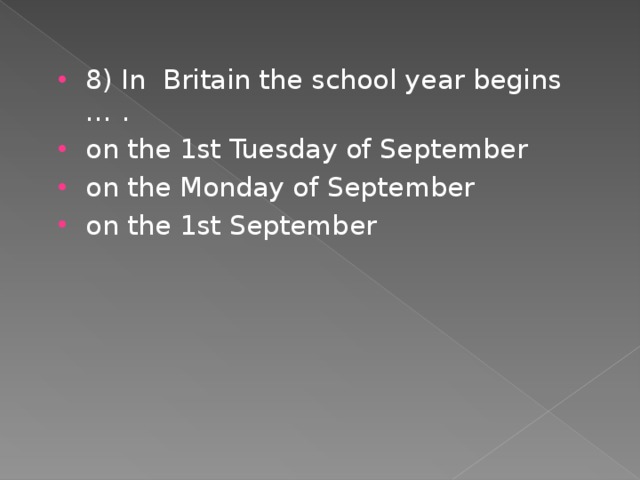
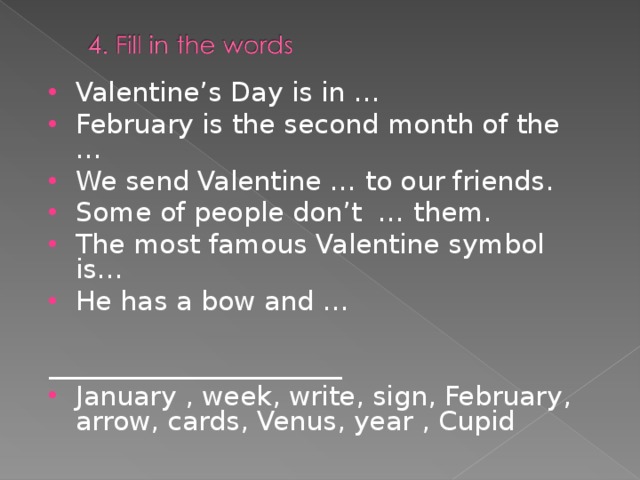
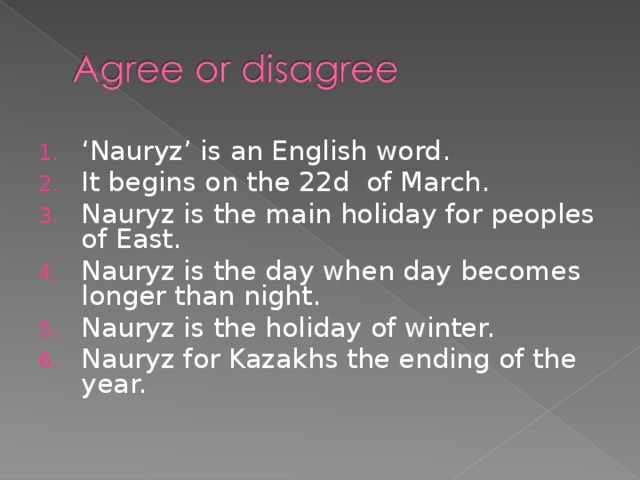
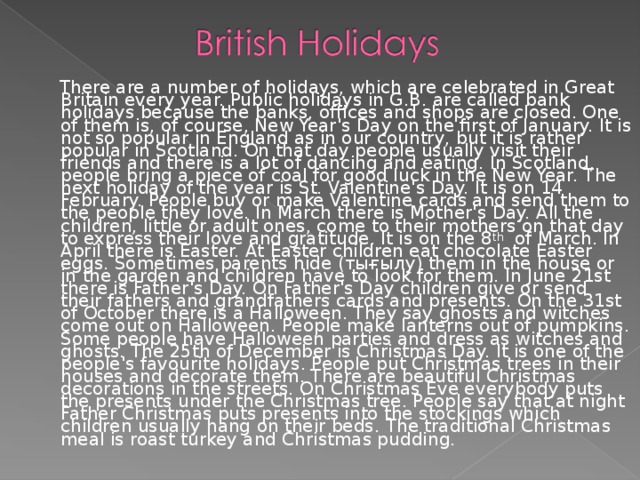
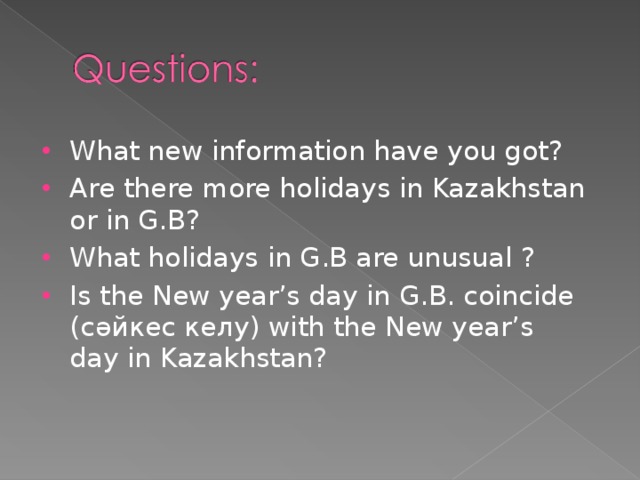
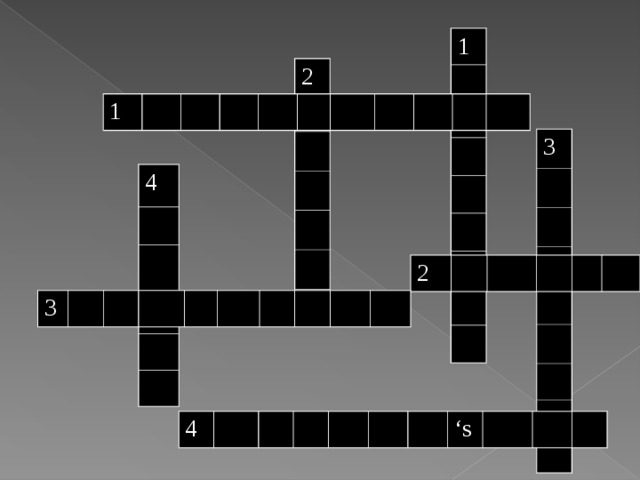
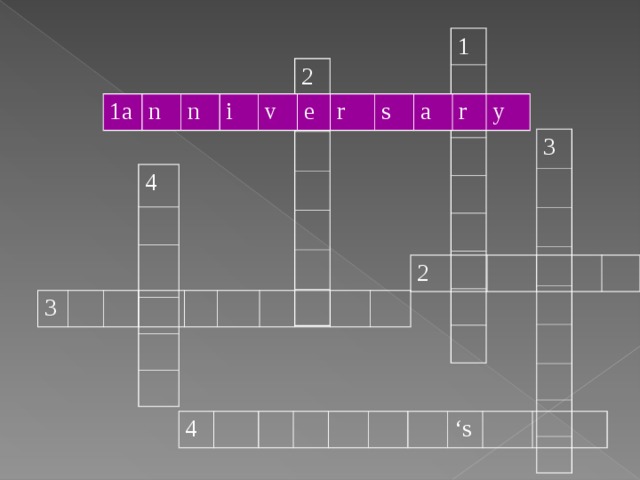
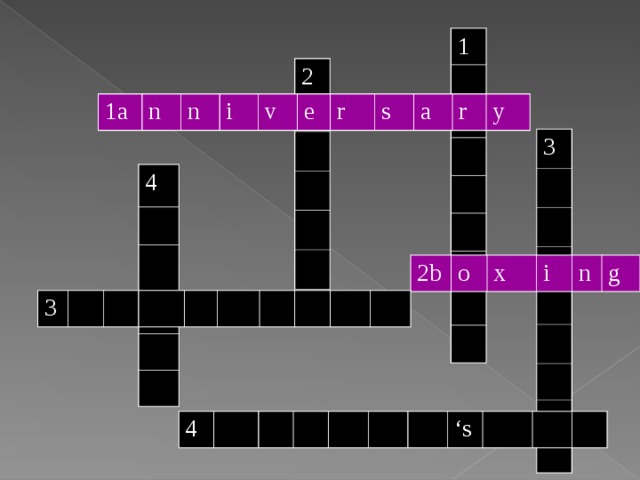
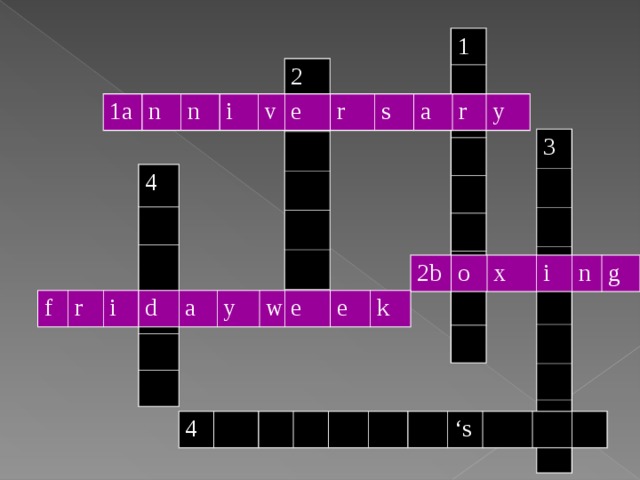
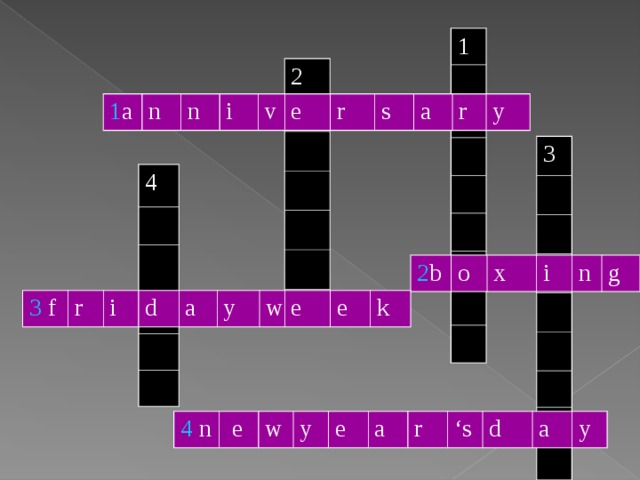
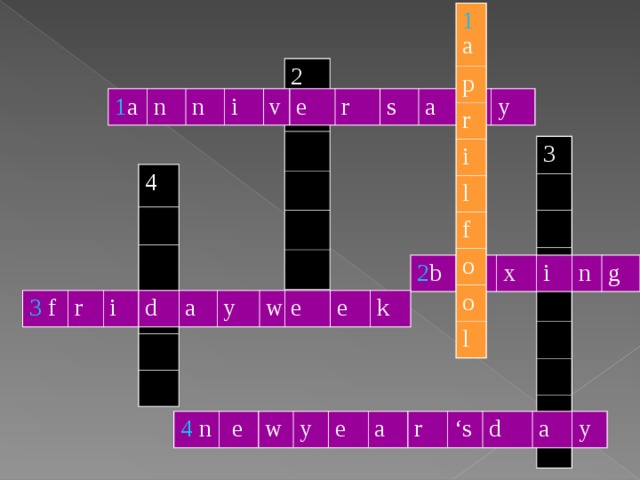
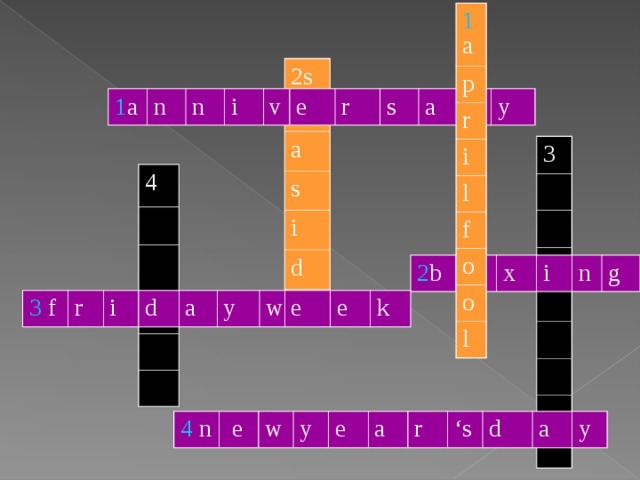
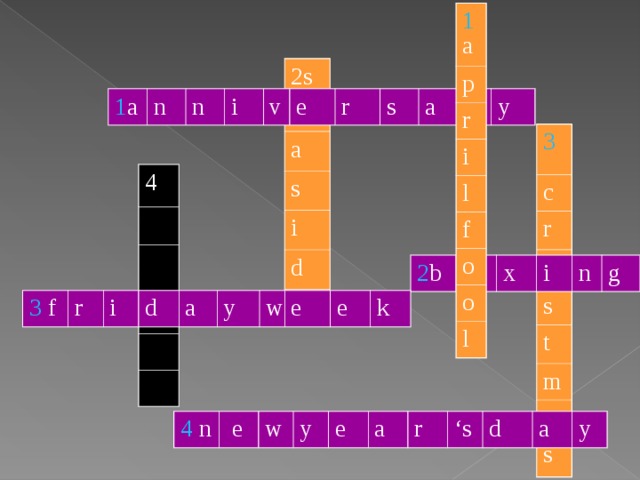
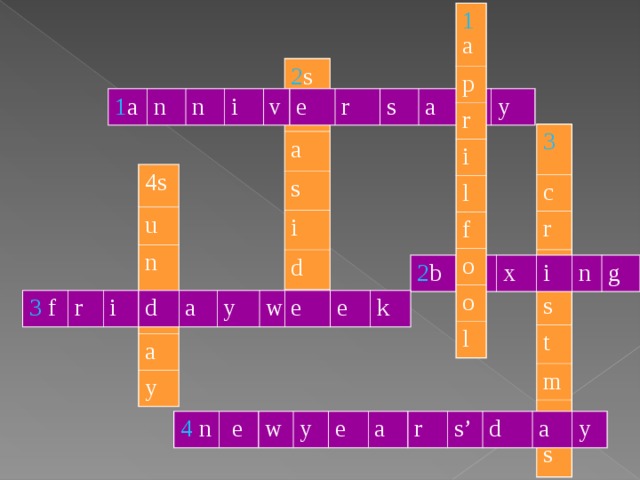
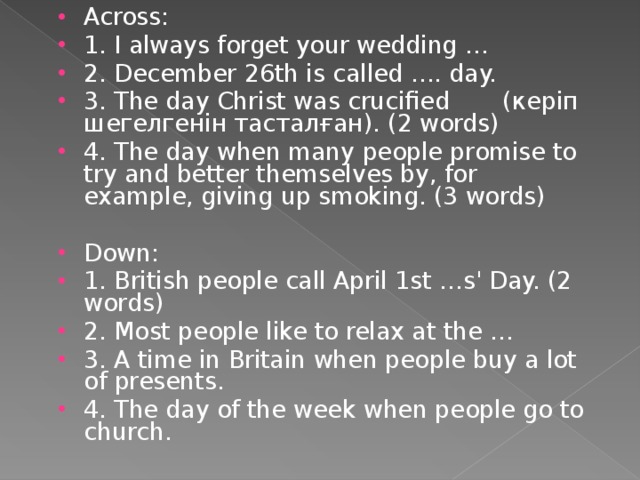
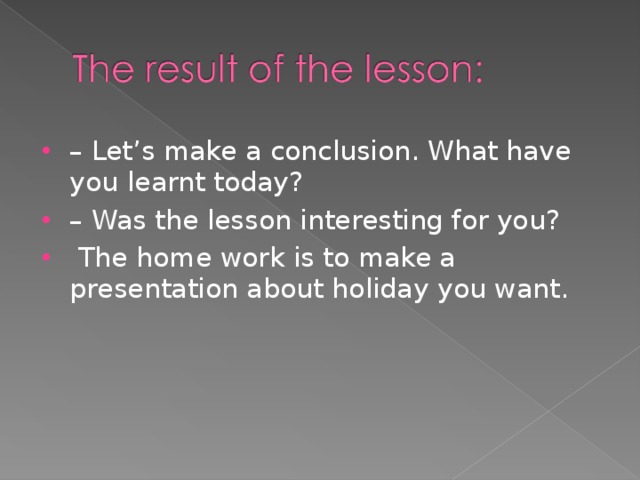
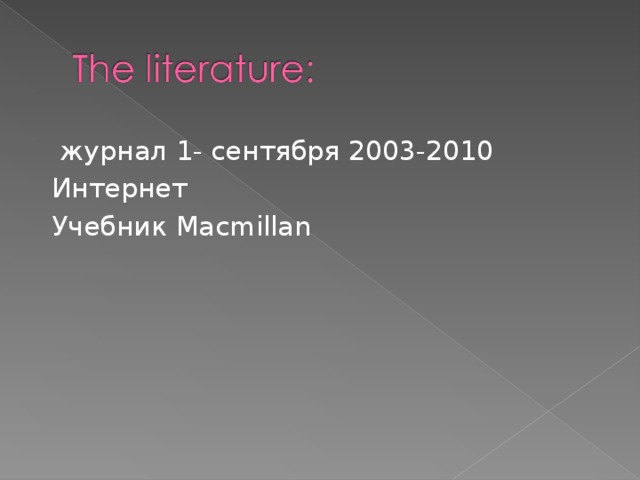









 Презентация по английскому языку по теме "Праздники" (7 класс) (3.58 MB)
Презентация по английскому языку по теме "Праздники" (7 класс) (3.58 MB)
 0
0 1056
1056 85
85 Нравится
0
Нравится
0


